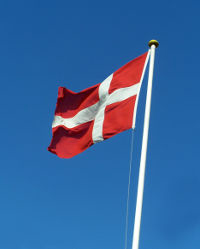There are many reasons why people move to Denmark. For some, it is a desire for change, while for others it may be business opportunities. Denmark is an appealing destination for expats because its unemployment rates are low, the living standards are high, and there is much attention paid to family, education, social welfare, sports and culture. It is also a land with spectacular scenery and a pleasant pace of life. But living in another country is also always a significant change, and it is natural to have a few doubts as you plan your move. To help you get started, here are 5 things you should know before moving to Denmark.It helps to speak Danish
To adapt to Danish society, you need to speak the language. This may not be a requirement in business places or educational institutions, but daily living is far easier and also more enjoyable when you can communicate easily with the locals. It’s advisable to speak to your citizen service and enquire about language courses when you move to Denmark. The municipality of the area offers these programs, which usually last for up to 3 years. They are free for those who meet the requirements, such as being over 18 years of age and possessing a CPR number, which is a national identification number.
The weather is unpredictable
The climate in Denmark varies considerably during the year, with the winter period being especially unpredictable. The warmest temperatures are usually in July, while the coldest are in February. It’s helpful to dress in layers so that you can readily adjust to the changing weather. It’s also a good idea to buy some waterproof boots. Another thing many foreigners find difficult to adjust to is the darkness that shrouds the place in the cold, snowy winter months. But spring and early summer bring in sunlight that lasts throughout the waking hours.
You may have to adjust your taste buds
Food is expensive in Denmark. Also, the ethnic food is very different from that in, say, America or the United Kingdom. However, there are some good restaurants serving European cuisine. The Danes are used to having a cold sandwich for lunch and a slightly more elaborate spread may consist of cold cuts, fish or chicken, and salad. Everything is usually served cold, irrespective of the weather, and this may require some adjustment for those who are used to their warm meals. A great snack in Denmark is the hot dog, which the locals do very well. You can find one at any of the many sausage wagons or hot dog stands located in many areas.
Bikes are a necessity
Petrol is expensive here, often several times more than what you may be used to paying. Paying for the fuel to drive around on a regular basis may actually add up to more than what you are paying for your rental car. The best solution – buy a bike. About one third of the population in the capital of Copenhagen commutes on bike. It’s an easy, convenient way to travel and get some exercise, plus it is also pollution-free. Denmark has dedicated bike paths, but stay alert, as serious bikers do not take kindly to disruptions in bike traffic. Biking is a serious mode of transportation in Denmark, therefore remember to follow the rules and use hand signals, as failing to do so may upset the entire stream of bikers behind you.
Don’t expect any social niceties
You will soon notice that that no one says “please” or “thank you”, even though the Danes are known to be a respectful and polite lot. And that’s precisely the point – when everyone is polite to each other all the time, the Danish words for “please” and “thank you” become redundant. The popular greeting of “How are you?” is also rarely used. The locals see no point in saying it without actually stopping to listen to the person. So if you want to ask a Dane how he or she is doing, you need to then sit down and listen to them. The Danes also value privacy a great deal, and may refrain from making small talk with you because they feel it might bother you. But if you do initiate a conversation, they will be sure to respond warmly.

